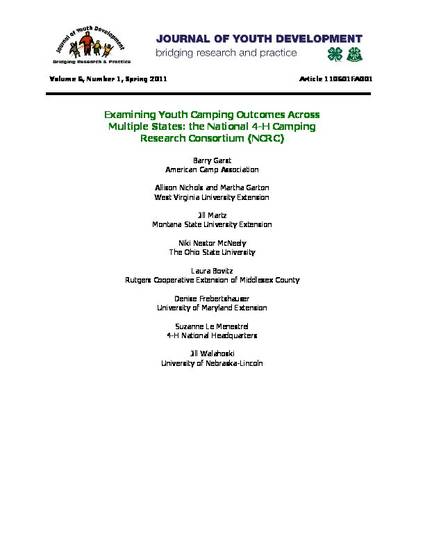
The impact of residential camp participation is needed for camps focused on a variety of outcomes including education, summer fun, prevention, and youth development. One system, the Cooperative Extension Service, conducts 4-H residential camps in most states nationwide every year. These camps, though offering educational enhancement and fun activities, are focused on youth development, incorporating a framework called the essential elements of positive youth development. The National 4-H Camping Research Consortium (NCRC), a group of Extension specialists and county-level educators, designed and piloted assessment tools for 4-H camps that can be used at any camp that focuses on youth development. The camp context questionnaire measures three essential elements of youth development: relationship with a caring adult, self-determination and mastery, and safe and inclusive environments. The life skill questionnaire measures three life skills: accepting self and others, accomplishing goals, and taking responsibility. Logic models and evaluation guidelines help camp directors plan camps that work for youth.

The published version of this article can be found here: http://www.nae4ha.com/assets/documents/JYDfinal_110601x.pdf